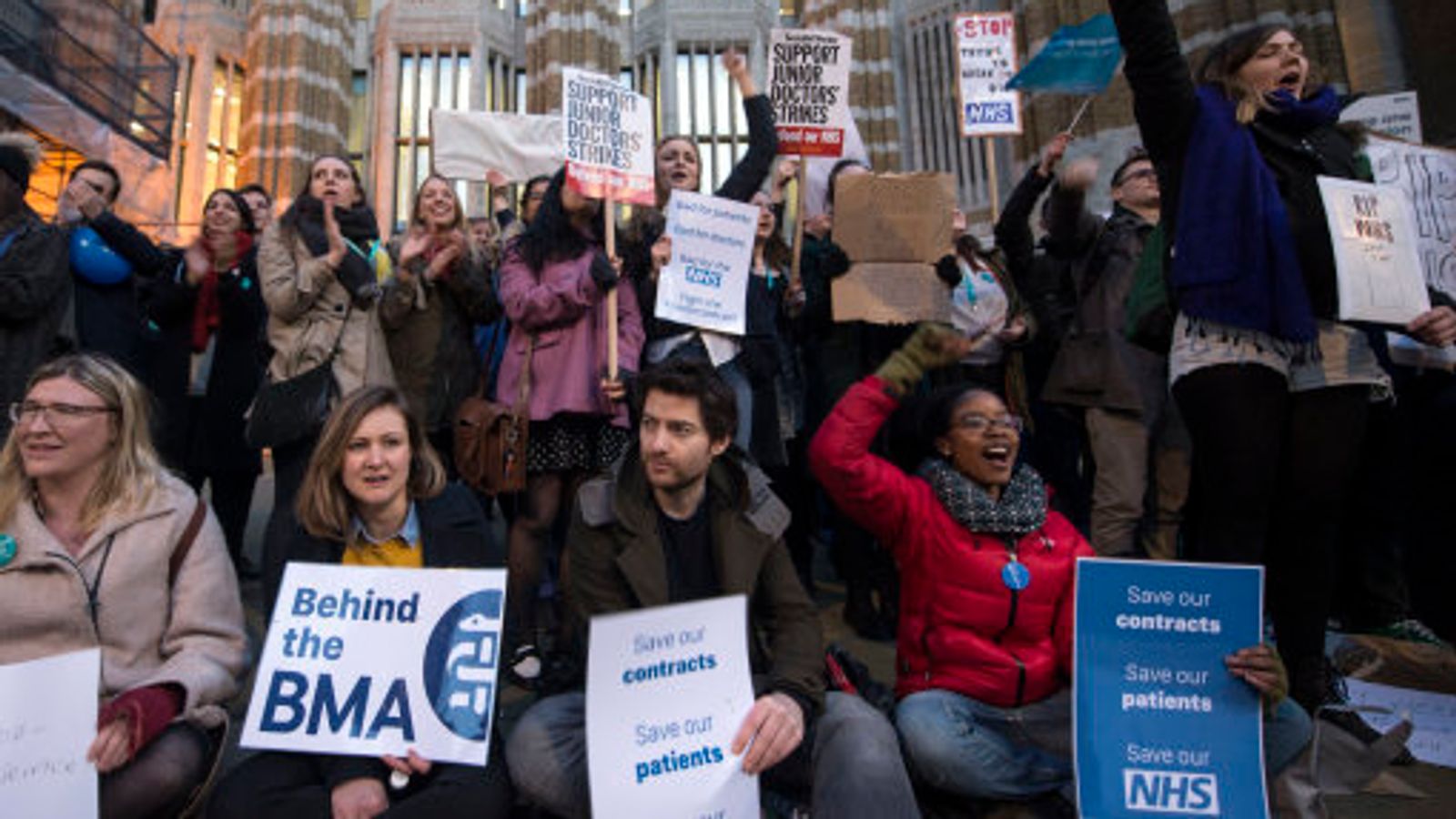Emergency care will be prioritised by the NHS next week when strike action by junior doctors will see the biggest disruption of services to date, with thousands of routine appointments postponed.
The industrial action is set to begin on Monday at all trusts in England for 72 hours.
It is the longest continuous period of walkouts to hit the health service in recent months, following strikes by nurses, paramedics and physiotherapists.
However, with around 61,000 junior doctors making up half of the medical workforce and no national derogations having been agreed, the NHS is warning the latest action is expected to see some of the most severe disruption to date, impacting on efforts to cut the record-high waiting list.
As a result, emergency, critical and maternity care will be prioritised, as well as patients who have waited the longest for elective care and cancer surgery where possible.
Professor Sir Stephen Powis, the medical director of the NHS, said: “The NHS has been working incredibly hard to mitigate the impact of this strike.
“While we are doing what we can to avoid having to reschedule appointments, there’s no doubt that disruption will be much more severe than before and patients who have been waiting for some time will face postponements across many treatment areas.
GPs ‘in crisis’: One in four say practices may close due to ‘insurmountable pressures’
‘Catalogue of failings’: Family of Alan Geddes murdered by newly released prisoner condemns authorities
Wegovy: NHS weight loss jab already having supply issues as private clinics stockpile
“Where there are postponements, we’ll be trying to re-book as quickly as possible. However, it is vital to attend planned appointments unless told otherwise.
“We have no option but to prioritise emergency and critical care as a matter of patient safety, and we’re asking the public to help us and use 111 online as well as local services like general practice and pharmacies as first points of call, but people should of course always use 999 in a life-threatening emergency.”
The NHS stressed that the measures were needed to make sure safe care continues to be available for those in life-threatening situations.
It said routine appointments and procedures will only be cancelled where unavoidable and patients will be offered an alternative date as soon as possible.
Click to subscribe to the Sky News Daily wherever you get your podcasts
The warning comes after senior leaders reportedly told the Health Service Journal that ministers have not sufficiently sounded the alarm about the risk to patient harm posed by the strikes.
More than 98% of junior doctors from the British Medical Association (BMA) voted to take industrial action in the dispute over pay and conditions.
Talks between the BMA and Health Secretary Steve Barclay at the start of March did not improve matters, with the union saying the cabinet minister “refused to come forth with any improved offer”.
The BMA says that while workload and waiting lists are at record highs, pay for junior doctors has been cut “by more than a quarter since 2008”.
But the government says pay has increased by a cumulative 8.2% since 2019/20 and further wage increases aren’t affordable at a time of record-high inflation.
Health leaders ‘preparing for absolute worst’
Please use Chrome browser for a more accessible video player
The NHS Confederation, which represents trusts across the country, urged both sides to “show willingness to compromise and bring these strikes to an end without delay”.
It said health leaders are “preparing for the absolute worst” with some taking down 50% of their planned theatre activity and others are opting for 100%.
Elsewhere one large hospital is having to rearrange more than 2,000 outpatient appointments and over 200 non-urgent surgeries next week.
Read more:
Around 23,000 excess deaths in 2022 were ‘linked to A&E waits’
NHS England set to miss two key targets of COVID recovery plan
Matthew Taylor, chief executive of the NHS Confederation, said: “We are disappointed the government and BMA have failed to put a stop to the forthcoming junior doctors strikes, especially after the positive steps that have been made with the other trade unions.”
He added: “… no national exceptions have been agreed to these walkouts, and many trusts will find themselves in a difficult position trying to navigate payment of the BMA’s recommended rate card for consultants when covering the work of junior doctors.
“This means it is likely that disruption to patient services will be like nothing the NHS has seen since industrial action started last December. Thousands of procedures and appointments are likely to be cancelled.”








